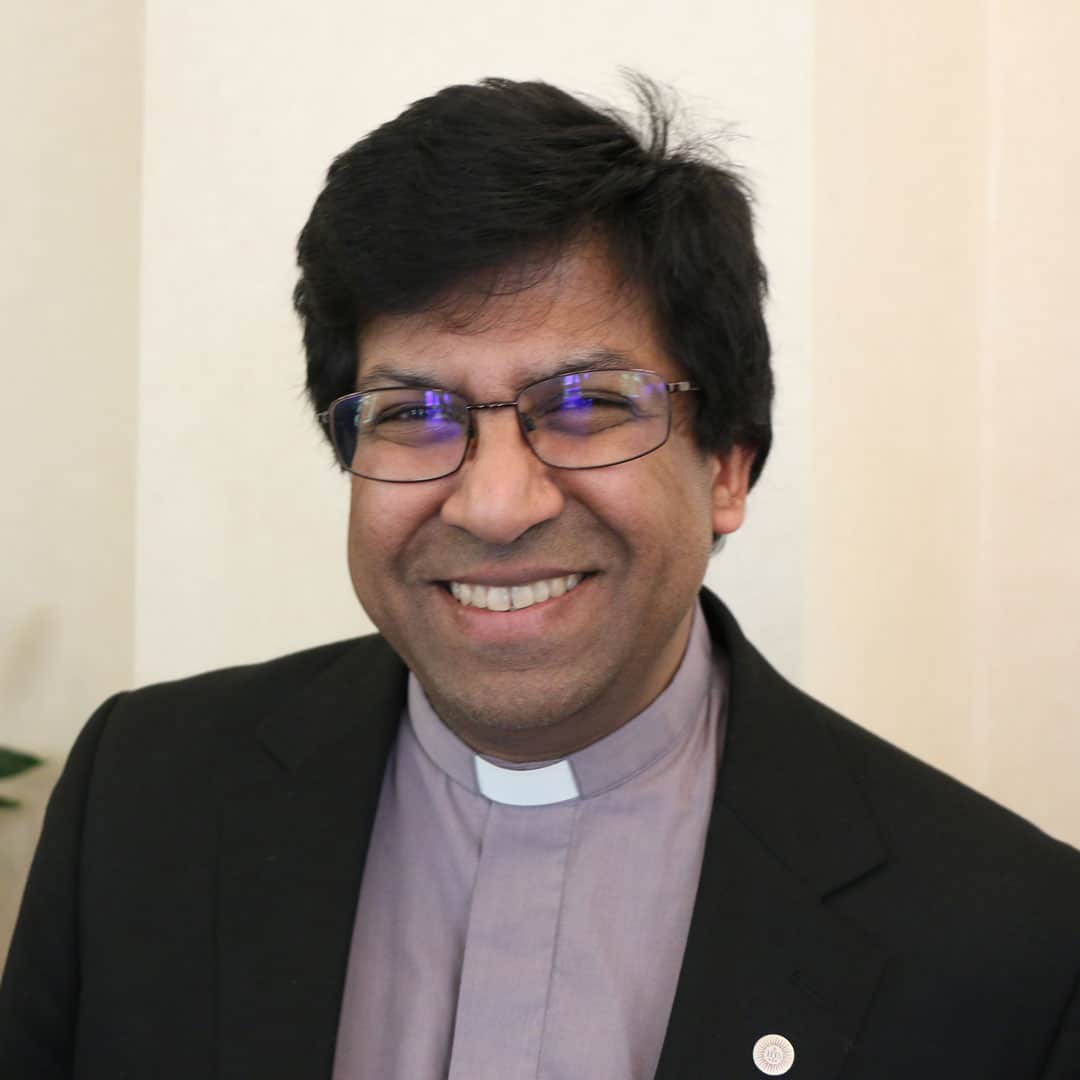
Fr Dushan Croos SJ is a London born Jesuit who holds a degree in Physics. Since ordination, he has worked as a chaplain in schools and universities, as well with Jesuit Young Adult Ministries. He recently joined the Manchester Catholic Chaplaincy.
He recently led the Province retreat of the Society of Jesus in Britain. For eight days participants were invited to listen to how the Lord is calling us to move together on a path to ecological conversion.
During Season of Creation, we seek to welcome creation as a gift, entering a fraternal relationship to keep it and serve it humbly. We seek a healed relationship to God, people, and the creatures who St Francis of Assisi spoke of as brother and sister.
We know how we’ve turned away from God and our fellow creatures, thereby risking the lives of future generations. There´s a huge temptation to drown ourselves in the enormity of what is happening to our world and its ecosystems, leaving us paralysed in impotent fear.
Some of the disinformation sources which have tempted and discouraged us from acting earlier, are now tempting us to give up seeking an ecological transformation and conversion, so that they can continue selling us fossil fuels.
We are called upon to look catastrophe in the eye, and then keep listening to where Christ is leading us in hope, centring what we do and say on the promptings of the Holy Spirit, perhaps following the advice of those annoying posters ‘Keep calm and carry on’.
Personally, and collectively, we must ask what is it that we need to change in our lives, in the way we receive and reflect on news and in what we ask of business corporations and governments?
I think that´s not so very different to what St Ignatius invites us to do in time of desolation: not be sucked into the whirlpool of fear, but to ‘stand firm and constant in the resolutions and decision by which one was guided the day before the desolation or during the preceding time of consolation’ [Spiritual Exercises 318- 321].
In Laudato Si’, Pope Francis urgently invites us to consider what is happening to our common home. Human activities put us in a dramatic situation. The principal points are well summarised: pollution, a culture of waste, resource depletion, biodiversity loss, and the degradation of the quality of human and social life.
We may feel more capable of successfully facing small, controllable, local situations, which require limited action. However, the scope of the task is much more daunting when we look at massive, irreversible changes such as the poisoning by pesticides of the soils of monoculture plantations on which an entire country’s economy depends, or threats to the whole ecosystem like the enormous amounts of CO2 in the atmosphere.
Unfortunately, as inhabitants of one of the richest nations of the world, we have become used to tolerating the extreme poverty of the mass of humanity. The ecological crisis which becomes more and more acute, brings us to the social crisis highlighting the scandal of extreme poverty.
It is a scandal because it is principally caused by human beings in the richest countries and because human beings have within their grasp the means to overcome it. Pope Francis asks us ‘to hear both the cry of the earth and the cry of the poor’ (LS49).
We can do this by becoming conscious of our responsibility for our societies and economic systems. In acknowledging interconnectedness of creation, we realise that there is a link between our behaviour and the ecological collapse impacting farmers in Bangladesh who lose their lands to recurrent floods, and then are forced to seek work in oppressive conditions in unsafe textile factories.
We are aware of the enormous scope of the crisis. Thus, an international effort in which the whole world works together; nations working together in spite of divergent interests, is essential.
In December 2015, COP21 brought about the Paris Climate Agreement. This was a major milestone. However, further progress has been hampered by a variety of factors, including the temporary withdrawal of the United States from the agreement in 2017 and last-minute changes at COP26 in which China and India called for wording to be changed, calling for a phase down of coal, rather than a phasing out. Language matters!
Faced with this ongoing situation, Pope Francis is outraged at the weakness of the response. We are approaching a number of ecological tipping points. While Climate change and CO2 are the most urgent of ecological problems, we are also called to attend to biodiversity loss, which may be even more serious.
Every year, Western societies consume far more than the planet can provide renewably in a year. In 2018, a country like the UK consumed the equivalent of 2.6 planets, and the US the equivalent of 5 planets, while Bangladesh, which is already suffering greatly from climate change, consumes only 0.8 planets.
The Pope calls on us to slow down and look at reality in a different way, to stop and rediscover the depths of life. But human beings are neither the product of chance, nor condemned to be predetermined: we are free and capable of making responsible and altruistic choices.
As informed, well-intentioned, prayerful, and discerning people we ask the Holy Spirit to show us how to overcome our sense of bewilderment and powerlessness before the daily headlines.
As Christian disciples we are called to walk forward in hope even if we have no optimism, and no expectation that things are necessarily going to turn out well.
We well know that just before its conclusion, the Gospel story looks as if it has failed completely. So, in our time, how might God lead us out of this situation? What is the Lord asking us to do for creation us, so that it will continue to sustain future generations?
